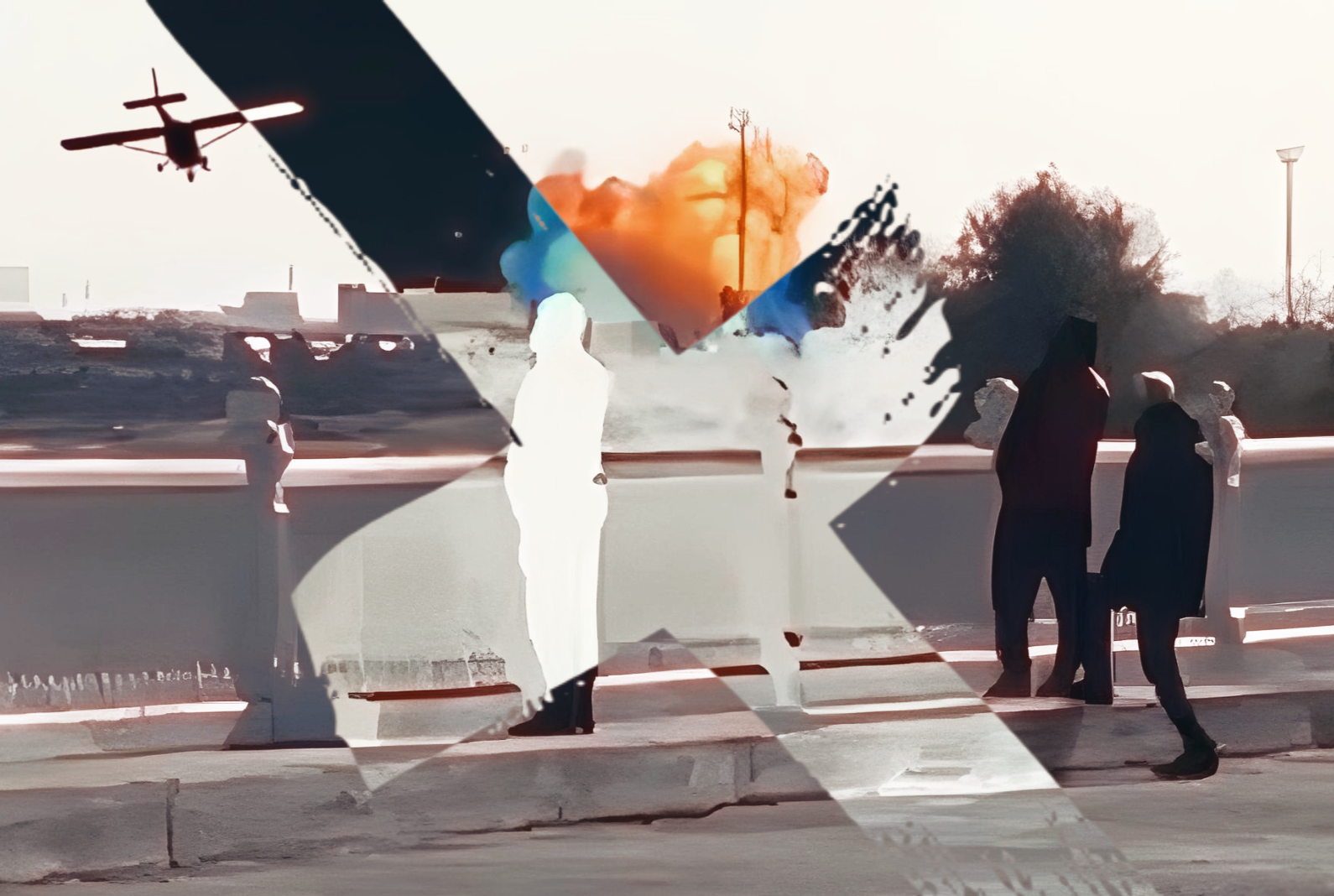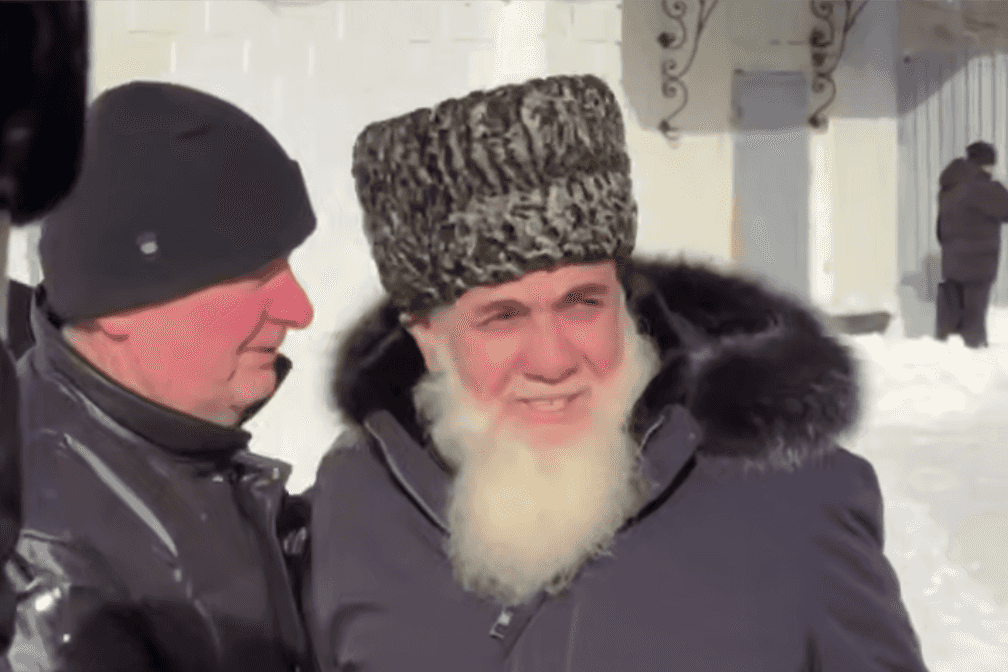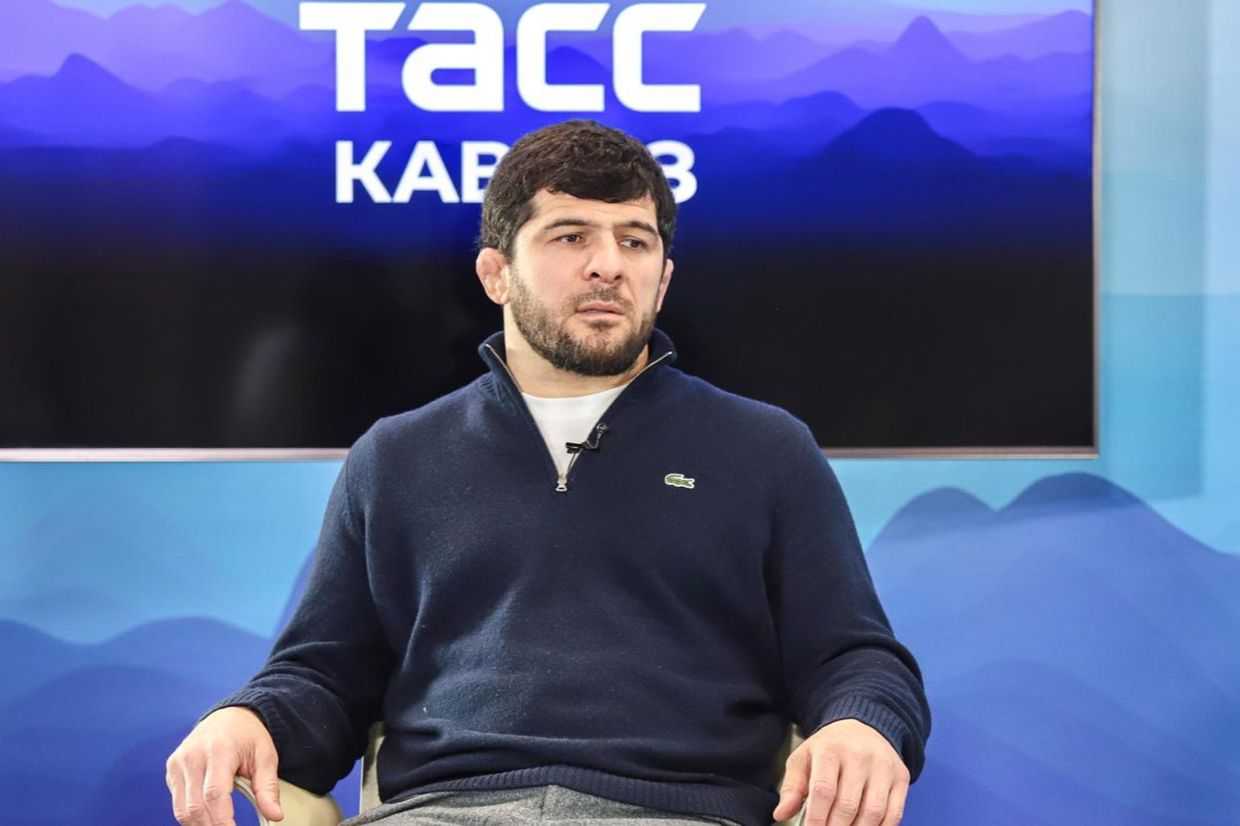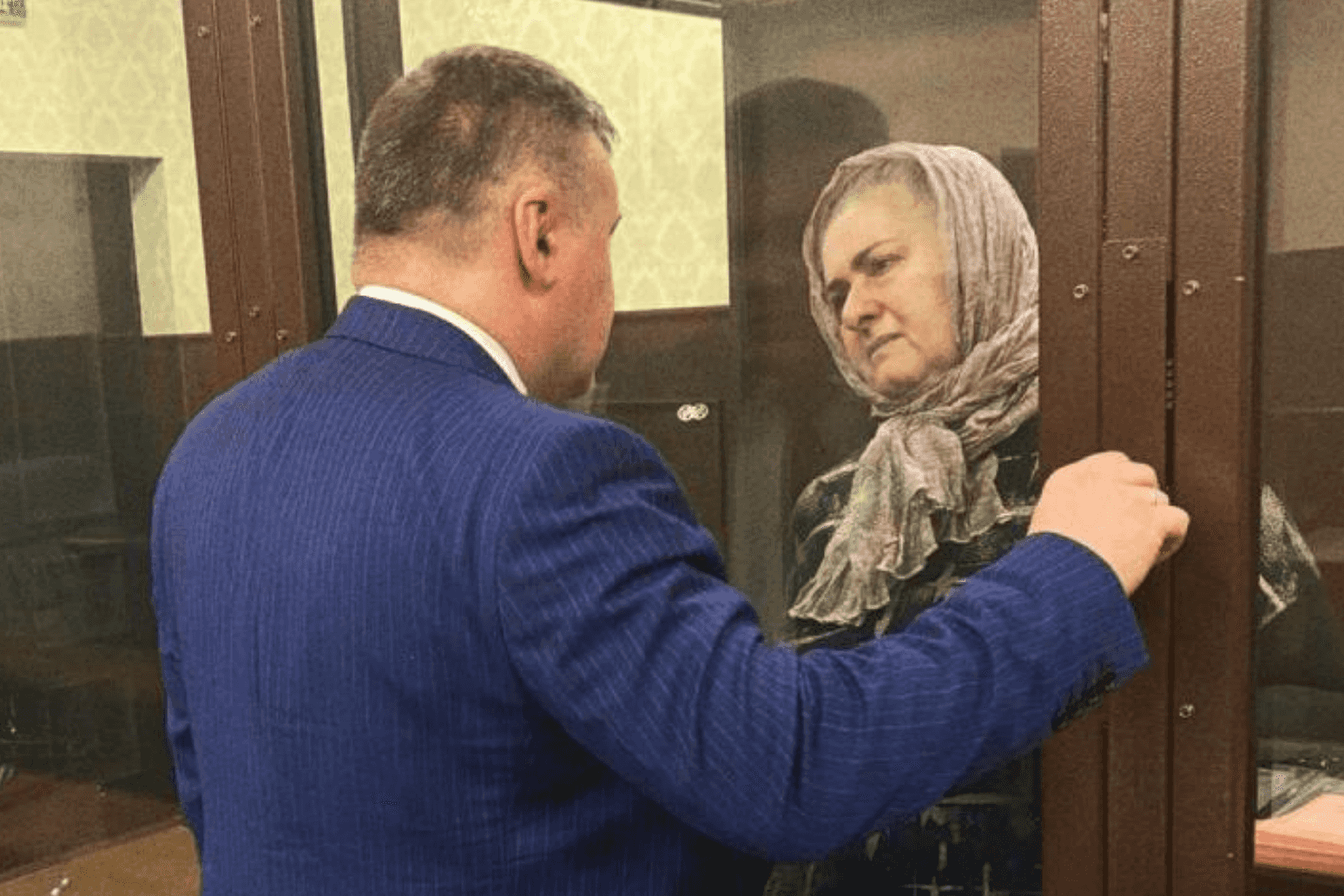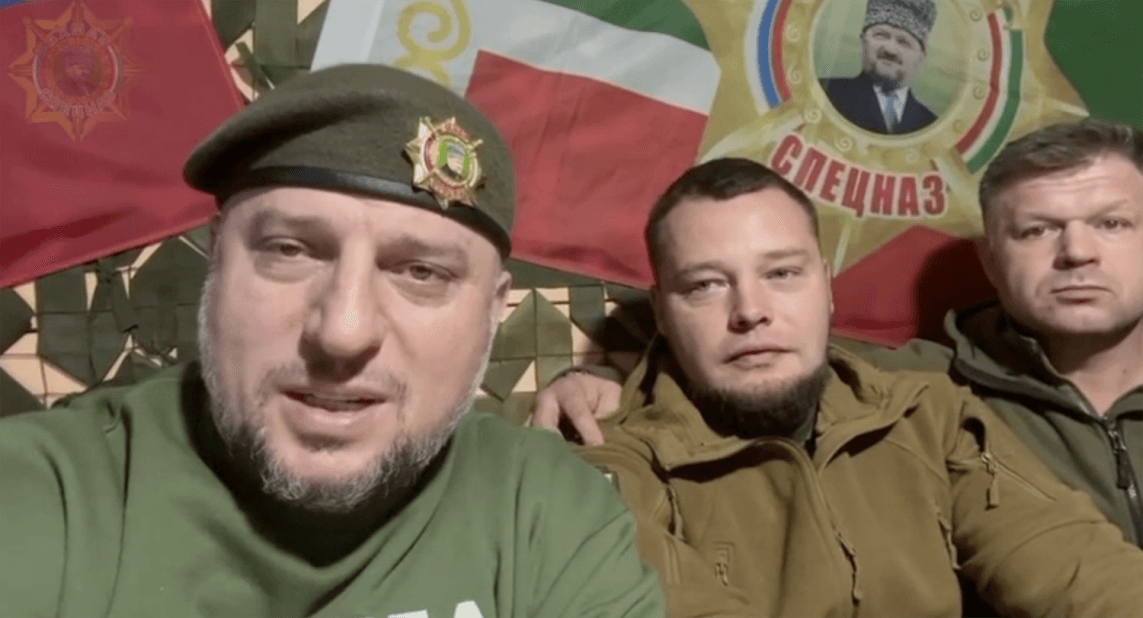
In a bizarre episode of collaboration between two Russian military units which are at least on paper diametrically opposed to each other, a notorious neo-Nazi leader and the commander of Chechnya’s Akhmat unit announced they would be cooperating.
On Monday, Apti Alaudinov, commander of the Chechen special forces unit Akhmat, published a six-minute video on his own Telegram-channel in which he sits with Alexei Milchakov, a commander of the neo-Nazi Rusich paramilitary, and his deputy, a combatant with the call sign ‘Bear’. In the video, Alaudinov recounts their conversation about Russian nationalism, and declares the two groups would work together.
Anti-Caucasian rhetoric has long been an integral part of the ideology of Russian neo-Nazis, starting back in the 1990s in connection with the war in Chechnya and related wave of terrorist attacks across Russia. At the time, a number of xenophobic sayings, such as, ‘Russia for Russians’ and ‘Stop feeding the Caucasus’ emerged. Landlords often refused to rent flats to natives of the North Caucasus in Moscow and other major Russian cities, regardless of their occupation. The anti-Caucasian sentiment gained popularity across the political spectrum and was at times echoed by famed opposition leader Alexei Navalny early on in his career.
As a result, Alaudinov's meeting with Milchakov, who is often referred to as Russia’s chief neo-Nazi, and the announcement of cooperation between the two groups, caused backlash from Chechens and Milchakov's followers alike.
Throughout the video, Alaudinov refers to Milchakov only by his call sign ‘Serb,’ but does not mention his second call sign, ‘Fritz’, which refers to a common Soviet-era slang term for German soldiers during World War II. Alaudinov noted that during the conversation, Milchakov convinced him that he was not exalting ethnic Russians over other minority groups in the country.
Alaudinov said that ‘not so long ago, Milchakov expressed less “internationalism” when he told in an interview how one of the Rusich fighters defected to Ukraine after seeing the [fighters from the Caucasus] in his hometown in [Ukrainian territories occupied by Russia]’.
‘We agreed in the end that we have a common enemy, common goals, common tasks, and a common country. We agreed that we will do everything so that no one can sway either inter-nationals or inter-confessionalists, but we will do everything for the good’, Alaudinov said in the video.
His words were echoed by Milchakov, who explained that he did not come to the meeting because he was ‘scared’ of anyone.
‘We will win because we are international’, said Milchakov’s deputy, Bear.
After the video was shared, Milchakov also published a photo from the meeting in Rusich’s Telegram channel, where he said they had discussed cooperation between the units and ‘extinguishing conflict situations’, and emphasised that the meeting was held at Alaudinov's invitation. He added a postscript with his call-sign Serb: ‘If the bitches are getting mad, it means I'm doing everything right’.
The post about the meeting on Rusich's Telegram channel got more than 12,000 negative reactions.
Many Russian propagandists also criticised the meeting, noting that there could be no explanation or justification for it.
Following the backlash, Milchakov then published a video in which he justified himself to his subscribers for meeting with the Chechen commander.
‘Gentlemen, I believe that I can independently decide with whom I can communicate and with whom not. I have never stepped down from my positions, I have never said that I am not who I am, so it is my personal business — to whom to pass what and how, with whom to communicate and with whom not. All the more, why should I refuse the outstretched hand of friendship’, Milchakov said.
Milchakov and Alaudinov met shortly after the publication of a video in Rusich’s Telegram channel with a link to an article entitled, ‘New Year's storming of Grozny’, along with the caption ‘We remember and are proud’. On 31 December 1994, the Russian army stormed the Chechen capital, which marked the beginning of the First Russian–Chechen War, which resulted in the deaths of tens of thousands of residents of Chechnya, most of whom were civilians.
In April last year, a post appeared in Rusich's Telegram channel in response to the transfer of 3,000 mercenaries from the Wagner Group to Akhmat, accompanied with the line: ‘[They] sold out to the menagerie, jackals are not people’.
Alaudinov himself has also previously spoken unfavourably of Rusich, calling the fighters of the far-right unit ‘fascists’, ‘armchair warriors’, and ‘sofa heroes’.
Rusich was founded by Milchakov in 2014, and its members have long been involved in Russia’s military operations against Ukraine, dating back to its intervention in Donbas in 2014 and through its full-scale invasion that began in 2022.
In its Telegram channel, Rusich has repeatedly supported brutal practices against captives. The group's commanders are under EU and US sanctions.
In one video, Milchakov openly calls himself a Nazi. In 2011, he published photos of himself killing a puppy, cutting off its head, and eating the meat. The St Petersburg prosecutor's office then launched an investigation into animal cruelty.
Last year, Rusich claimed to be looking for a non-Russian victim for ritual sacrifice. Three days later, the post was deleted, and Rusich published another post thanking the channel’s followers for their feedback and said the ‘task is closed.’
Former Rusich commander Yan Petrovsky (also known as Voislav Torden) is under investigation in Finland, where he faces war crimes charges. According to the Finnish prosecutor's office, he was involved in the murder of 22 Ukrainian prisoners of war. Petrovsky was detained in 2023 when he tried to move to Finland with his family.
President Vladimir Putin and other Russian officials have repeatedly said that the so-called ‘denazification’ of Ukraine is one of the primary goals and justification of its full-scale invasion of the country.
